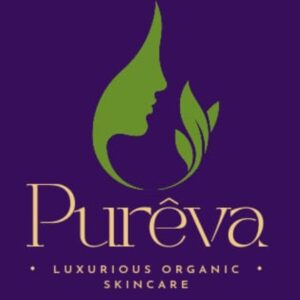
Luxury in Every Drop: The True Cost of Organic Skincare (And Why It’s Worth It)
What are you really paying for in a luxury skincare bottle—and why do organic products cost more? Here’s the value breakdown behind every drop.
Understanding the Price Tag: Why Organic Skincare Seems Expensive
When comparing skincare products, price is often the first thing consumers notice—and the first thing they question. Why does one moisturizer cost $20 while another is $120?
At first glance, the difference may seem unjustified. But when you understand the sourcing, formulation, and ethical labor behind luxury organic skincare, the price tag starts to make sense—not just financially, but ethically and functionally.
Luxury organic skincare isn’t just about putting a “clean beauty” label on the bottle. It’s about using pure, sustainably sourced ingredients, avoiding harsh synthetics, ensuring ethical labor practices, and producing in smaller, fresher batches. Every layer of quality and care adds to the cost—and to the value.
According to a 2023 market report by Transparency Market Research, organic skincare ingredients cost 20% to 60% more than their synthetic counterparts, largely due to slower production cycles, seasonal growing limitations, and non-chemical preservation methods (source).
Ingredient Quality: You Get What You Grow
The true luxury of organic skincare starts at the source—literally. Certified organic ingredients must be grown without synthetic pesticides, fertilizers, or genetically modified organisms. This not only protects the skin from unnecessary toxins but also promotes soil and environmental health.
Take prickly pear oil, one of the most coveted oils in high-end skincare. It takes nearly a ton of cactus fruit to produce just one liter of this vitamin E-rich oil. The process is labor-intensive and yields small amounts—but the result is a fast-absorbing, antioxidant powerhouse that supports elasticity and radiance.
Other examples include:
When skincare companies cut costs, they often replace these powerful actives with fillers like mineral oil, silicones, and artificial emulsifiers—which offer texture, but no nourishment.
According to Environmental Working Group (EWG), nearly 1 in 3 mainstream skincare products contain ingredients flagged for skin irritation or long-term health risks (source).
Sustainable Packaging and Ethical Production
Luxury organic skincare brands often invest in eco-friendly, biodegradable, or recyclable packaging—glass over plastic, minimal secondary materials, and FSC-certified labels. These practices raise production costs but reduce environmental impact.
Then there’s the human cost of beauty: organic brands typically pay a premium for fair-trade labor, ethical harvesting, and transparent supply chains. This is a sharp contrast to mass-market manufacturing, where exploitation in sourcing and production still runs rampant.
A 2021 study by Green America found that 60% of raw ingredients used in beauty products are grown in countries with poor labor protections, while certified organic farms pay workers up to 70% more in wages on average (source).
Supporting ethical skincare is not just a feel-good choice—it’s an informed consumer decision that aligns your values with your purchase.
Longevity and Efficacy: Less Waste, Better Results
It’s easy to see a higher price and assume that means less affordability—but luxury skincare can actually be more cost-effective over time. High-performance, organic formulas often:
For example, a properly formulated moisturizer with natural peptides, vitamins, and emollients may eliminate the need for separate night creams, eye creams, and serums—streamlining your routine while elevating your results.
A study published in Dermatology and Therapy found that natural, antioxidant-rich skincare regimens outperformed multi-step routines with synthetic actives over a 12-week trial, especially in reducing sensitivity and improving hydration retention (source).
The Emotional and Ethical Value of Skincare
We often associate “value” with performance—but luxury skincare also offers emotional and psychological value. The act of using thoughtfully crafted products—made with care, intention, and respect for the planet—can create a deeper sense of satisfaction, even beyond results.
This is what psychologists call eudaimonic consumption—buying in alignment with personal values, leading to more fulfillment and less impulse-driven shopping.
A skincare ritual rooted in sustainability, transparency, and efficacy supports not only skin health but a greater sense of self-respect and alignment.
Final Thoughts
Luxury organic skincare isn’t overpriced—it’s properly priced. When you consider the purity of the ingredients, the sustainability of the packaging, the ethics behind the labor, and the power of results-driven formulas, you’re not just buying a product—you’re buying into a better way of caring for your skin and the world around you.
The true cost of organic skincare isn’t in the price tag—it’s in the value you get back with every drop.
© 2024 Pureva.beauty